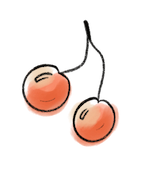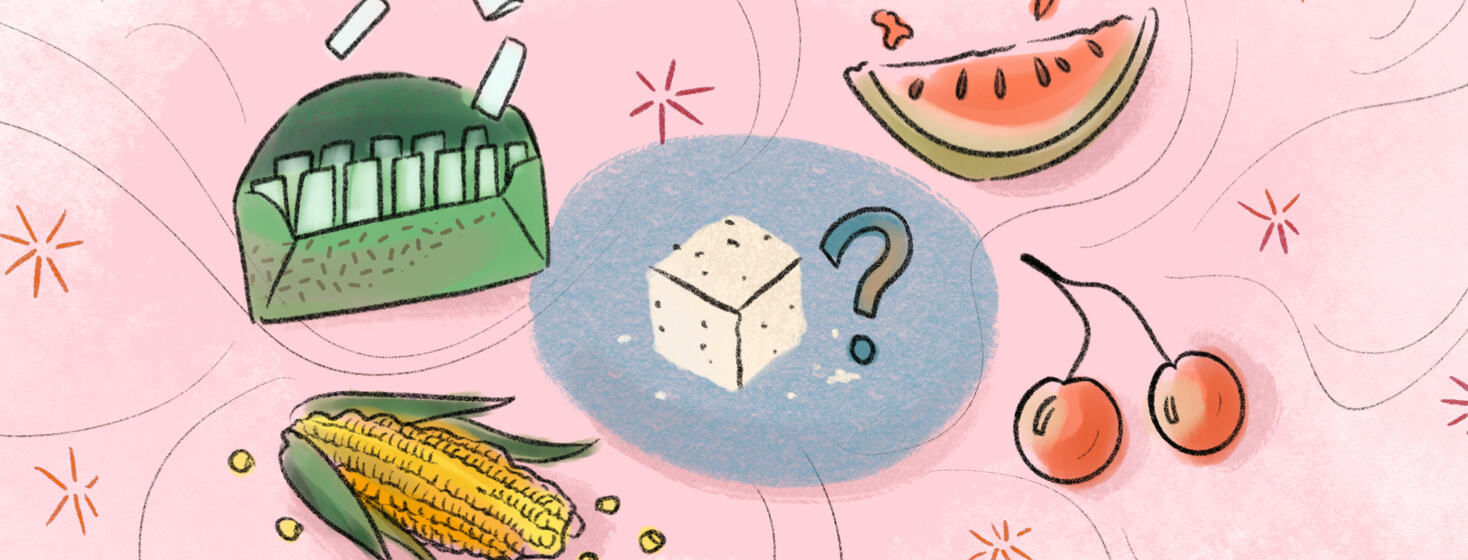The Low FODMAP Diet: All About Polyols
Are you following the low FODMAP diet to manage your IBS symptoms? If so, you may be wondering what all those letters stand for. I will focus on the "P" in FODMAP in this article. The "P" in FODMAP stands for polyols, also known as "sugar alcohols." This is usually how they appear on ingredient labels.
I will review why sugar alcohols can impact IBS symptoms. And I'll review which foods have sugar alcohols in them so that you know what to avoid when you’re in the elimination phase of the low FODMAP diet.
What are sugar alcohols?
Sugar alcohols are a carbohydrate formed when a sugar unit and an alcohol unit (no, not the kind we drink!) join together. They are partially absorbed in the gut. This makes them popular as low-calorie sweeteners because they do not cause your blood sugar to spike as much as regular sugar.  They also provide only about half the calories per gram as carbohydrates, making them popular in low-calorie foods.1
They also provide only about half the calories per gram as carbohydrates, making them popular in low-calorie foods.1
Some of the sugar alcohols you might find on an ingredient list include mannitol, maltitol, isomalt, sorbitol, and xylitol. Sugar alcohols are a low-calorie sweetener in many commercial foods, but they also occur naturally in some fruits and vegetables.1
Sugar alcohols and digestion
Since sugar alcohols are only partially absorbed in your gut, eating large amounts of them can have a laxative effect. This happens because the undigested sugar alcohols pull large amounts of water into your gut. This can cause bloating and diarrhea. Also, your gut bacteria feed on undigested sugar alcohols, which worsens gas and bloating.1
This can cause bloating and diarrhea. Also, your gut bacteria feed on undigested sugar alcohols, which worsens gas and bloating.1
This can happen in people without IBS, especially if they consume large amounts of sugar alcohol at once. But people with IBS seem more sensitive to sugar alcohols.2
Where will I find sugar alcohols?
The sugar alcohols mannitol and sorbitol are found naturally in many fruits and some vegetables. They are also very common in commercially produced foods.3
The list below shows some of the most common foods high in either sorbitol or mannitol. It comes from the Monash University FODMAP Database.3
Fruits
- Apple
- Apricot
- Avocado
- Blackberries
- Cherries
- Nectarine
- Peach
- Pear
- Plum
- Watermelon
Vegetables
- Corn
- Celery
- Cauliflower
- Most mushrooms (fresh, not canned)
- Sauerkraut
Commercial products
- Sugar-free chewing gum
- Candy
- Low-calorie or low-carb foods
You do not need to avoid all the foods on this list forever. If you follow the low FODMAP diet but are past the elimination phase, you can add these foods back to your diet. As you add them back, note how they affect you to know how much you can handle without triggering symptoms.3
As you add them back, note how they affect you to know how much you can handle without triggering symptoms.3
You may be looking for alternatives to sugar alcohols in commercial products. Your best bet is to use regular sugar as a sweetener, as regular sugar is naturally low FODMAP. If you are looking for sugar-free alternatives, try calorie-free sweeteners like sucralose, stevia, or monk fruit extract.3
Final thoughts
 Sugar alcohols, or polyols, cause gut symptoms if you eat more than your body can absorb. When you are in the elimination phase of the low FODMAP diet, it’s best to avoid all foods containing sugar and alcohol. However, once you have passed the elimination phase, you can add sugar alcohols to your diet in small amounts to see if you can tolerate them. It is all about finding what works for you!
Sugar alcohols, or polyols, cause gut symptoms if you eat more than your body can absorb. When you are in the elimination phase of the low FODMAP diet, it’s best to avoid all foods containing sugar and alcohol. However, once you have passed the elimination phase, you can add sugar alcohols to your diet in small amounts to see if you can tolerate them. It is all about finding what works for you!

Join the conversation